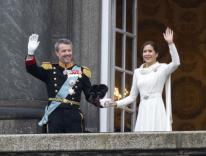Yesterday, the Feast of St. Augustine, Archbishop Vincent Nichols of Birmingham, England preached at a Mass at Merton College Oxford. The occasion was a workshop, sponsored by the Latin Mass Society, to instruct priests on the celebration of the "extraordinary form" of the Roman Rite.
The Archbishop made a number of points that I find judicious and helpful.
No matter the language of the celebration, no matter the form, these phases of the rite, this journey of the liturgy, must be set forth clearly. The celebrant, acting in the person of Christ and in the name of the Church, needs to ensure that his actions enable the souls in his care to participate in this saving mystery, to take part in each of its steps. This participation has to be profound, spiritual, informed by understanding an active participation and not passive, not leaving it to the priest to celebrate the Mass for us. Such is the shape and expectation of the one rite of the Mass, whether in its ordinary or extraordinary form, and it is given for the nourishment and salvation of the people.
The Catechism of the Catholic Church turns to St Augustine, whose feast we keep, to make clear the mystery in which we are to participate. It states:
St Augustine admirably summed up this doctrine that moves us to an ever more complete participation in our Redeemers sacrifice which we celebrate in the Eucharist:
This wholly redeemed city, the assembly and society of the saints, is offered to God as a universal sacrifice by the high priest who in the form of a slave went so far as to offer himself for us in his Passion, to make us the Body of so great a headSuch is the sacrifice of Christians: we who are many are one Body in Christ. The Church continues to reproduce this sacrifice in the sacrament of the altar, so well known to believers, wherein it is evident to them that in what she offers, she herself is offered. (CCC 1372).
I hope that your study of the Missal of Pope John XXIII will help you to appreciate the history and richness of that form of the Mass. And I trust that you will bring all that you learn to every celebration of the Mass you lead in the future. I have no doubt that each of us must strive for improvements in the way the ordinary form of the Mass is celebrated so that its inner mystery and spiritual movement is more clearly set forth. As Pope Benedict says, we must do all we can to bring out the spiritual richness and theological depth of the Missal of Paul VI, for that will guarantee that the Missal of Paul VI will unite parish communities and be loved by them.
Please remember that what you study here is not a relic, not a reverting to the past, but part of the living tradition of the Church. It is, therefore, to be understood and entered into in the light of that living tradition today.
The full text of his remarks is available in the "Comments" section of the post by Damian Thompson in the Telegraph.
I attended last Sunday, for the first time in forty years, a Mass celebrated according to the Missal of John XXIII. I hope to make some further observations in the days to come. But one powerful impression was the need, as the Pope suggests, for both forms of the Roman rite to enrich one another in their different, but complementary sensitivities.
Please email comments to [email protected] and join the conversation on our Facebook page.
Share
Previous Story
Augustinian gems
Next Story
How to Purchase an Online-Only Subscription to Commonweal

